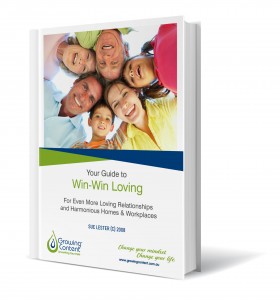
Life is too short to spend with anyone who wants to change you to fit their idea of who you should be.
Loneliness, as you age, increases your odds of any early death by 45%, beating obesity at 20% and alcoholism at 30%. That’s worth taking notice of.
Loneliness isn’t something to be ashamed of, nor is it the domain of the elderly, the shy, the socially inept, the ‘losers’ of society. It can’t be cured by herding them all into a “Loneliness Support Group”. That feeling of loneliness is simply a warning signal from Nature that you are becoming separate from your ‘tribe’ and need to either re-connect or find a new tribe, for your own survival.
Just as the feeling of hunger signals it’s time to get up and hunt for food before your energy runs out, and thirst tells you to seek out water before you dehydrate and pass out, the feeling of loneliness is a survival mechanism designed to keep you safe by being connected to your community. After all, humans are a puny lot, without decent claws, teeth or tough skin for protection, and unable to run, swim, fly or climb fast enough to evade a predator. We need our tribe and collective wisdom to survive, in the past, and now.
So the feeling of loneliness serves a positive purpose and is not a sign there is something wrong with you personally, unless you say it to be, and then that self-talk is the real problem. Fortunately self-talk can be the solution too. Self-talk is self-programming so you can talk yourself into or out of anything. Much is to do with the labels we give ourselves, or allow others to give us.
The term “introvert” is a classic example of a mistaken negative label. It used to, and commonly still does in some circles, mean someone who is chronically shy, social inept, and possibly emotionally dysfunctional. In reality it simply means someone who needs to recharge alone. An “extrovert” is someone who needs to recharge with others. So the ‘life of the party’ could actually be a confident, fun loving introvert, or a shy, insecure extrovert who acts loud to hide that insecurity. Both could be lonely, whether alone, in a relationship or in a group. (See the list at the end of this article to see if you are in an at-risk category.)
Extroverts generally process and act on the feeling of loneliness quickly as they need others around to recharge their own batteries. Introverts, like me for example (yes, despite the international speaking gigs, coaching, training facilitation and adventurous travel), need to be alone to recharge, so we can slip into loneliness without even really noticing. And because introverts tend to be more inwardly focused, negative self-talk can come more easily into play, keeping us stuck in a lonely situation. It takes more of an effort to get up and out of the house to mix with others, and excuses are easily concocted and swallowed. So now it’s safe to come out of the introvert closet, are you one too?
Modern lifestyles, home designs and increased mobility of homes, jobs, careers, work locations and relationships mean people need to put more effort into staying connected.
Introverts who indulge in too much negative self-talk over an extended period of time become so disconnected they shut down and become either defensive or offensive to the outside world. It becomes self-preservation at the expense of others, becoming hyper-sensitive to perceived social dangers. They struggle to feel like they matter or belong anywhere. These people need a whole mindset identity shift and much evidence to the contrary before they start trusting others enough to reconnect.
So the solution to that feeling of loneliness is always re-connection, though the methods and how easily that is done depends very much on the individual, their personality, interests, confidence levels, past experiences and willingness to be vulnerable in meeting and allowing others to get to know them. The first step to change is always awareness. Awareness of how you are feeling, noticing your self-talk ( recognize any of yours on the list below?), your excuses for avoiding social contact and the stories you are telling yourself.
The second step is to commit to taking action, then mapping out in concentric circles who your contacts are and how close, or not, they are. You can then decide who you want closer contact with, and brainstorm ideas on how to do that. e.g. a telephone chat, an invitation to coffee, going for a walk together. To fill in gaps, by reconnecting with someone from your past or meeting new people, the solution may be joining a club or interest group, online dating, volunteering, or holding a street party.
A sense of belonging and connection, a sense of purpose, feeling needed, and meaningful achievable challenges with others are antidotes to loneliness and low self-worth. Solutions start with each of us consciously connecting with others – smile, greet, offers of help, in person contact, reaching out, volunteering. Talk yourself into connecting.
Be aware, social media and electronic communication are a poor substitute for face to face talking, touching and connecting. They are open to misinterpretation, and can increase loneliness if the social media illusions of reality are believed. e.g. everyone else in the world has the most loving partner/family/pet and is deliriously happy with loads of fabulous caring friends. (Trust me, my 1754 facebook ‘friends’ aren’t really.)
If all of the above seems far to difficult then professional help through a mindset coach can help by re-programming your self-talk, strengthening your self-belief and self-confidence, and re-building your relationships if necessary. A life shared with love and laughter is far richer than one spent feeling unhappy and lonely. True?
(Note: above are a few of the points covered in my recent keynote presentation at CQ University Community Forum in Rockhampton on “The Impact of Loneliness”.)
Negative Self-talk: Examples Perpetuating Loneliness
They wouldn’t want to see me. Anyway, it’s been too long.
S/he is too busy, I don’t want to interrupt. I don’t want to be a burden.
I’ve got nothing to say. And even if I did, they wouldn’t be interested.
I’ve nothing in common with them. They are all too loud/old/young/successful/carefree/XYZ.
I’m too tired. I’ll go next time.
Going out is too much trouble. Besides the 10,000th re-run of M*A*S*H is on.
I don’t have anything suitable to wear. I don’t know what to wear.
I feel fat. My hair needs washing.
It costs too much. What a waste of money!
I never liked XYZ anyway. Why would I want to go there/do that/see them?
What if there’s no one there I know?
I’m too shy. I don’t fit in.
My X hurts. It’s going to rain. I don’t know where it is or how to get there. I’ll get lost, be late, and embarrass myself.
If I go, people will think I’m weak, a loser.
They’re busy. I’ll just send a text or quick email.
S/he is so happy/successful/wealthy now, and wouldn’t want to know me.
I wouldn’t fit in. What if I say the wrong thing? What if they ignore me?
They’ll find out the truth about me. (Sad, lonely, abused)
I don’t like driving at night/in the city/when parking is a hassle. I don’t have transport.
What if everyone else knows what to do, and I don’t?
I’m way too busy. No one understands.
Best not get involved. They don’t need me or my help anyway. Someone else would be better.
I’m too old/too young/too XYZ.
I’m useless anyway. I’m too dumb to learn. Oh, I could never do that. What if….?
People Most At Risk of Loneliness:
Abusive relationship participants
Addicts – drugs, alcohol, gambling, pornography, social media
Carers
CEOs
Chronically ill – children, teens, adults, senior citizens
Chronically ill people’s spouses/parents
DIDO/Shift workers and spouses
Gay, Lesbian, Transgender
Intellectually different – well above or below average, or mental health issues
Mature age students
Minority Culture/Religion
Newcomers
Physically different
Retirees – men
Returned from active duty, paramedics, police, firemen
Rural, farmers.
Senior citizens
Solopreneurs/business owners/”workaholics”
Sole parents
Stay at home parents with young children. Home-schoolers.
Unemployed/Underemployed/Retrenched.
Unhappily married/single
Young people
Widows/Widowers


Leave a Reply